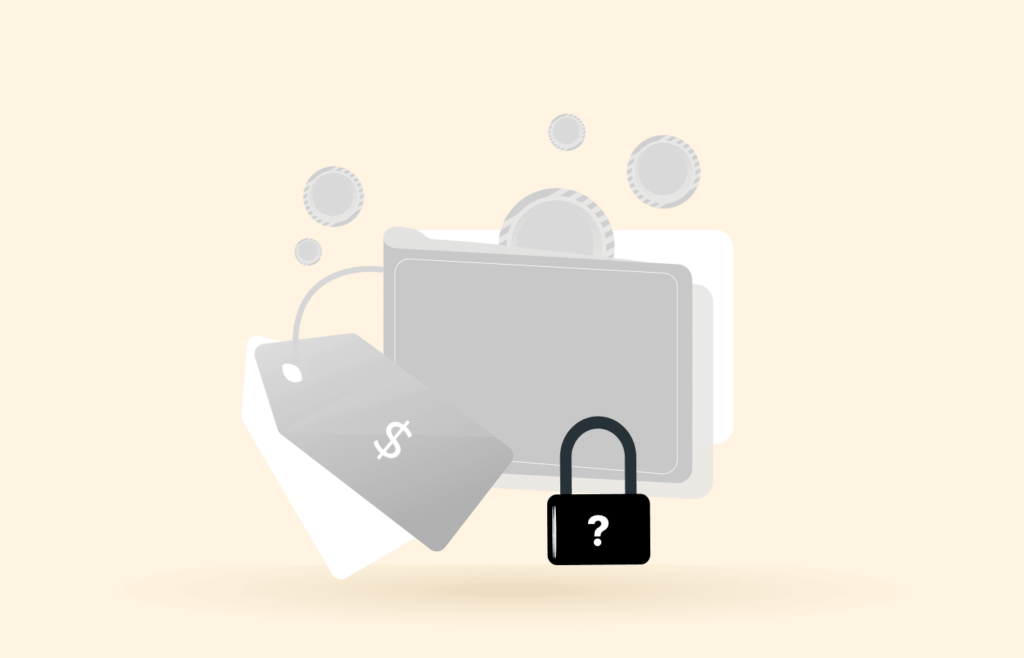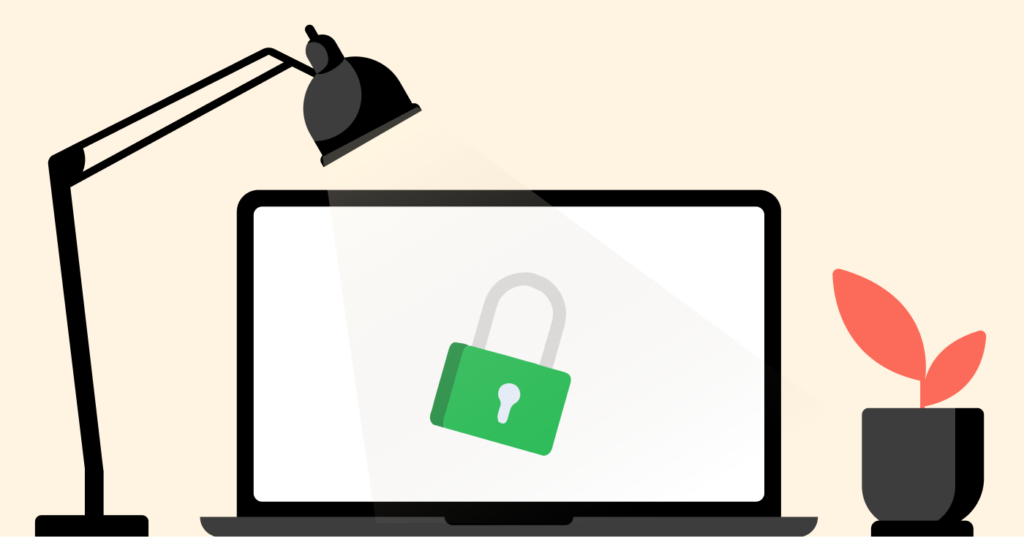
If you are taking your first steps into the cryptocurrency ocean, you must learn about choosing a secure “cold wallet” or hardware wallet. But what are they, anyway? And why are they all the rage for crypto investors? I’ve heard you asked.
This article will tell you what these hardware wallets are, how they keep your digital assets safe, and how to pick the one that suits you best. So, let’s begin with the basics.
Cryptocurrency wallets 101

Although, most crypto enthusiasts often recommend using a hardware cryptocurrency wallet. However, for new cryptonauts, choosing the right wallet, especially a bulky hardware gadget, sounds weird, remarkably, when plenty of alternatives are available. So, to help you understand better, here’s a quick breakdown of the different categories of cryptocurrency wallets.
Web wallets
These wallets are available through a web browser. They are usually a service provided by a third party, such as a cryptocurrency exchange. All you need to have is an account as a web wallet user. No software downloads or clients can save a lot of time and energy. However, the user’s assets are stored in a third party’s vault, and such websites can (and have been) compromised.
The result can be a total loss of cryptocurrency. The best use for web wallets is to keep a small number of tokens you use for frequent transactions. But this is not a type of wallet in which you should keep many tokens or any amount for an extended period.
Desktop wallets
Desktop wallets are software you install on your desktop computer to store your private keys on your hard drive. They are safer than web wallets because you don’t need somebody else’s server to keep your assets. But whenever the computer in question goes online, it becomes hot storage, which means there’s a risk.
Desktop wallets are more versatile and autonomic than their web counterparts. But, long-term storage needs other means of storage, especially in large amounts.
Mobile wallets
These are portable alternatives for crypto investors on the go. In addition, they allow settling micropayments quickly. They are easy to use and usually include all the essential functions you expect from a wallet. So these are good options for all users, from beginners to the more experienced.
Convenience is the main feature of mobile wallets, of course. But their portability makes them easier to misplace or lose than their desktop cousins. So the best approach to mobile wallets is to consider them your purse for digital pocket money and nothing else.
Paper wallets
Paper wallets are cold storage wallets. The wallet is nothing but a piece of cardboard (or metal, wood, or anything you can have printed) in which the private and public encryption keys are written or painted. Cold storage doesn’t get any harder than paper wallets, as nothing is less digital than a piece of cardboard.
Deploying your coins for a transaction requires typing every essential character by character. Nothing is as immune to hackers as a paper wallet, so they are safe. However, if your little piece of paper goes missing or the ink fades out, they will take away your coins with them.
Hardware wallets
These are hardware devices designed to safely store your private keys so that they can be hot or cold, depending on your preference.
The hardware wallet is practically immune to other wallets’ risks because of being on the internet. Indeed, your main worry with this type of wallet is physical theft. But even in that unfortunate situation, the PIN code will enable you to rescue all your assets if you react quickly enough to the robbery.
Hardware wallets: What are they?

A hardware cryptocurrency wallet is a device that can store your private keys and sign your cryptocurrency transactions.
The cryptocurrency blockchains that keep a given token status within the network know no usernames or passwords. Your ownership of a digital coin relies on your ability to encrypt a message with a specific private key.
And what is a private key, I hear you ask? It’s a string of characters created as you set up a cryptocurrency wallet for the first time. Each private key is associated with a crypto address. Each address, in turn, allows access only with this private key.
Computers were the only storage media for private keys during crypto’s early days. Then smartphones came along. And if your crypto savings were modest, there was nothing wrong with that. But if you were a large holder, you needed something safer.
Many cryptonauts grew worried that their computers could get a malware infection and that one of the consequences would be the loss of their virtual capital.
And that’s how hardware wallets came into existence. They provide a physical place to store your private key, not your computer or phone, that can remain offline and safe from digital threats. So if your computer has any problem, your private key remains available in another piece of hardware. Also, it remains offline, far away from hackers –because software wallets are vulnerable to hackers and attacks.
Any digital thief can’t even try to steal your cryptocurrency this way, as they would have to steal the physical device itself.
So, the physical wallet is like a digital safe that keeps your cryptocurrency off the internet, preventing the dangers surrounding it.
How do hardware wallets work?

A hardware wallet has no wifi or ethernet connectors. So you can’t get them online directly or on their own, which is why they are safe in the first place. They are safe from the rest of the internet as long as they are offline.
Setting up your physical wallet for the first time will give you a list of “backup seed words.” The question words will be a tool for you to use in your private key recovery if something goes wrong with your wallet. These words are to be kept safe, as they will be your backup in an emergency.
Remember that there is no “forgot my password” option in a physical wallet. So you’re done if you don’t have the backup seed words. If that seems threatening to you, consider it is for your protection. An attacker is also helpless against your hardware wallet without the seed words.
When the time comes for you to perform a crypto operation with your hardware wallet, you get it online through your PC, smartphone, or a Bluetooth connection. Then, the wallet produces a “signature,” which is something like a “blockchain receipt” created with your primary key. The signature then goes through your internet connection (PC or otherwise).
But the key doesn’t go through it, only the message. Therefore, nobody can steal your digital assets unless they steal your wallet first.
And what if your wallet is indeed stolen? It has a PIN code lock that should get in the way of an attacker’s activities once he has it. But this protective measure won’t last for long. If your hardware wallet becomes physically compromised, you must move quickly to recover and put your cryptocurrencies elsewhere.
Hardware or physical wallets are also known as “cold wallets.” We are about to explain why.
Why do private keys matter?
Cryptocurrency transactions are secured through cryptography, which uses unique strings of letters and numbers called keys. Private keys are digital signatures or passwords that allow you to manage your digital assets. These keys are generated when digital and public (wallet addresses) are created. Private keys are confidential, and you should not share them with anyone.
On the other hand, public keys are visible to anyone and enable others to send crypto to your wallet.
You could lose access to your cryptos forever if hackers steal or compromise your private keys. This is because the private keys are the only proof that you are the actual owner of the digital assets. So, hardware wallets are a secure way to store and manage private keys. These devices generate and store your private keys offline, where malicious actors cannot access them.
The devices prevent your private keys from being stolen or compromised online. Scammers may attempt to access your private keys by persuading you to verify a dubious transaction on your physical hardware wallet device. Therefore, always confirm the legitimacy of any transaction before verifying it.
Choosing a hardware wallet
There are many physical wallets on the market. However, we used the following measures to test and select the best cold wallets. We advise you to consider the following features before selecting the one you want.
1. Screen quality and size
Some wallets have no screen at all. Others have screens that can be big, small, monochrome, etc. If you expect your wallet to be very active with transactions, a big color display would be the best option, as it would improve your experience significantly.
2. Mobile features
Most of the hardware wallets work with the main desktop operating systems (Linux, Windows, and macOS). But mobile platforms are a different thing. Some wallets will work with Android, and some others with iOS. And many won’t work with both. So, if you intend for your smartphone (or tablet) to play a central role in your crypto-nautic experience, you need to pick the wallet that will work with your device.
A few wallets in the market include a Bluetooth feature. That simplifies significantly, as you don’t need to physically plug your wallet into your device whenever you want to use it.
3. Token compatibility
Different wallet models support other cryptocurrencies. Some can only store the most popular ones, like Bitcoin, on Ether. Some others can hold hundreds or even thousands of different tokens.
If your crypto plans do not include the specific currencies you plan to buy, you should pick the wallet that supports the most significant number of tokens. If you already have some coins in other hot wallets or exchanges, select a wallet to store the ones you already have.
4. Price
Cold wallets can cost anywhere from 40 USD to 700 USD. Obviously, price is a significant factor to consider. The most expensive ones support more currencies, have better screens, and have Bluetooth features.
But do you need all those rings and bells? If you stick to Bitcoin exclusively, the cheapest will do the trick perfectly. So, it would be best to consider what you will do with a new wallet and assess the costs and benefits.
5. Security
Choose a secure hardware wallet with security features like PIN codes, encryption, and biometric identification. This will guard your funds.
6. Recovery options
A trustworthy hardware wallet offers a recovery phrase for backup. This will come in handy to restore your funds if your wallet gets damaged or lost.
Hot vs. Cold wallets

Maybe you have already come across the term “cold wallet” regarding hardware wallets. It refers to any private key stored in a device that remains offline or unconnected to the internet.
So, physical wallets are cold wallets, but not the only type. Think about the piece of paper on which you wrote your seed words. That is also a cold wallet, as long as no digital document on the internet includes those words.
Suppose that you store your crypto on a laptop. Moreover, suppose your computer is securely stored in a bank vault and constantly offline. That would be a cold wallet as well.
On the other hand, a “hot wallet” stores your private key on an online device. For example, you could use Metamask (a popular software) to generate a crypto address. Then, the address in question is on your PC, which is connected to the internet constantly.
In this case, your computer constitutes a “hot wallet.” And it’s hot because if a hacker gets to your PC, he could steal your private key. Of course, hot wallets have their advantages. For instance, keeping your digital assets in a hot wallet is better than in your online exchange. But cold wallets are even safer.
So, now that you know the basics about digital wallets, the next question is: how can you tell which physical wallet is best for you?
Hardware wallets vs. Software wallets
Software wallets are digital wallets available online, making it easy to access them from anywhere. They are more flexible and are preferred mainly by investors with smaller portfolios who value convenience. However, the constant connection to the internet makes software wallets more vulnerable to hacking and malware.
Cold wallets are physical devices that are less vulnerable to cyber-attacks and hacking because they store your private keys offline. These devices are more expensive than software wallets and have personalized features like biometric authentication and PIN codes. Hardware wallets are best suited for investors with extensive and diverse portfolios because they can support different cryptos. However, you must connect a hardware wallet to a smartphone or computer when transacting.
It is crucial to consider your needs and preferences when choosing between a soft and a hardware wallet. The latter is the best option for large-scale cryptocurrency investors prioritizing peace of mind and security.
On the other hand, software wallets are more suitable for smaller investors who prefer ease of use and convenience. So, always conduct your research and choose a wallet that suits your needs while also considering usability and cost.
Hardware wallets: The popularity list
And now, let’s see some of the most popular hardware wallets on the market.
- Trezor Model T. A top-notch hardware with a prominent touchscreen, all in color, and supports a long list of tokens. It has no Bluetooth, and it won’t work with iOS devices. It costs about 260 USD.
- Ledger Nano X. A high-end product with top-not features including Bluetooth, large buttons, and support for a long list of coins, it works with iOS and Android. 149 USD.
- Ledger Nano S. A budget option in the Ledger family. Smaller buttons and no Bluetooth won’t work with iOS devices. The limited memory means you can’t use only three networks concurrently. 79 USD.
- KeepKey. It’s small and accessible, supporting the seven top blockchains and all their tokens. 48 USD.
- Keevo. A premium cold digital wallet supports four-factor authentication and transactions without storing seed words. It includes a large display, and it’s very newbie-friendly. 700USD.
- Ngrave Zero. This is also an excellent piece of hardware with a large color display that supports hundreds of cryptocurrencies. No cables, just QR codes govern your phone or computer communications. 420 USD.
- BitBoxO2. This one provides easy methods to restore your wallet with SD cards instead of seed words. It supports BTC, ETH, and LTC only. 149 USD.
How to set up a digital wallet
Follow these steps to configure a cold wallet.
- Create a PIN: Connect the hardware wallet to your phone or computer and create a PIN. You cannot access the wallet without it.
- Generate a recovery phrase: The hardware wallet will generate a recovery phrase. Keep it safe; it can recover your funds if you forget your PIN or lose your wallet.
- Transfer crypto: Start transferring small amounts to ensure everything is working correctly.
Are hardware wallets safe?

So, are these hardware wallets really so much safer than all the other options? Are they not just the latest gadgets to exploit increased interest in Bitcoin?
Ok, so let us tell you the truth about cold cold wallets: They are exceedingly safe. If you own many cryptocurrency tokens, you shouldn’t doubt that a physical wallet is the way to go. Regarding safety, the only way to compete with a cold wallet is to use an institutional-grade vault, like Coinbase Custody.
But if your digital investments remain at the hobby level, Coinbase Custody is unavailable to you. So, the physical wallet is the best you can do.
However, have you ever heard that “in digital security, no solution is ever 100% safe”? It’s true. It applies to hardware wallets as well. A competent hacker can still attack a hardware wallet; we will tell you about that in the next section.
Risks to avoid while using hardware wallets

We repeatedly repeat that cold wallets are the safest storage for your digital assets. But they are not absolutely invulnerable to everything. So it would be best if you still were careful about the two most common problems that can haunt you as a physical wallet owner.
1. Purchasing a second-hand hardware wallet or from an unknown seller
Buying a used cryptocurrency physical wallet is the easiest way to lose all your assets. The same goes if you use a vendor with a bad reputation.
There are merchants out there offering used or cheap popular wallets. But they could have altered the hardware so that you will not get an exact seed phrase but something the vendor planted instead.
If you buy a wallet, it has to be new and directly from the manufacturer. Never buy a used one, and if you’re going to buy from a third party, make sure it’s a reputable one.
2. Downloading false software
Yes, the physical wallets are “Cold wallets.” But they still run on software like any other hardware. So, there is a danger that you will download your wallet’s software from an unreliable source that will provide you with a fake or adulterated version. This software will provide your private key to the attackers.
In 2020, Google Play and Chrome web stores had a fake Ledger Live app on offer, previously posted by scammers. It was cleverly designed to look authentic, but it was a scam. So, the unsuspecting users would provide their seed words to the app and lose everything in a few minutes.
Know this: your wallet’s software will never ask you for your seed words if you need to recover your wallet. These words will only go directly into the device using buttons or screens. So, you can’t recover a physical wallet using the software.
So get your wallet’s software directly from the vendor’s website. You can find the links for Google Play or iOS apps there. It’s a safer option than running a search in the app store.
There are other risks involved in using physical wallets. You can also review these details in the guide on securing crypto wallets to protect your digital assets.
Do you need a hardware wallet to invest in crypto?

A hardware wallet provides airtight security to your digital assets, but you do not necessarily need it to start investing in crypto. You can begin with exchange and digital wallets before advancing to a Cold wallet, which requires more investment. However, exchange and digital wallets are constantly targeted by cybercriminals because they are internet-based. When you use exchange wallets, your cryptocurrency is managed by a third party, and you don’t have much control.
Also, you could lose your entire investment if anything happens to the exchanger. Therefore, exchange and digital wallets are a convenient and flexible way of managing your assets if you have a small investment, but they come with more risks than hardware wallets. If you intend to invest heavily, consider using a hardware wallet.
Benefits of using a hardware wallet
Hardware wallets are a reliable and secure way to store and manage digital assets. They are popular among long-term investors with large portfolios. Let’s look at some of the benefits of hardware wallets;
- Recovery options: You can regain access to your digital assets and private keys if your device is damaged, stolen, or lost. A unique recovery key is generated using 24 randomly generated words. If the hardware wallet is lost, stolen, or damaged, you can still recover the digital assets by inputting the unique key into another hardware wallet.
- PIN protection: Hardware wallets prevent unauthorized access with personal identification number (PIN) protection. This convenient security measure involves four to six digits, which is easy to remember and use. A PIN is better than a password because it is easy to remember and use.
- Peace of mind: Hardware wallets provide a secure way of storing private keys offline, reducing the risk of loss or theft. This aspect is vital for investors who hold substantial amounts of cryptocurrency over the long term.
- Immune to computer vulnerabilities: Your hardware wallet will be immune to most computer vulnerabilities since it stores your private keys offline. Moreover, most hardware wallets have features, like secure enclaves, isolated from the rest of the computer’s operating system.
- Compatibility: Hardware wallets can support different cryptocurrencies, making them attractive to investors with various digital assets. Moreover, many popular hardware wallets are linkable with other wallet interfaces, enabling you to interact with decentralized finance (DeFi) and non-fungible token (NFT) platforms.
- Limited attack surface: Hardware wallets store assets and sign transactions. Therefore, they are less vulnerable to attack surfaces than software exchanges or wallets.
- Security: Hardware wallets offer additional protection for private keys because they are less vulnerable to cyber-attacks. Many hardware wallets have extra security features such as biometric authentication and a PIN code, providing additional protection for your digital assets. If the hardware wallet is lost or stolen, the support can only be accessed using the unique recovery key combined with the PIN code or biometric authentication.
What are the disadvantages of a hardware wallet?
- Limited recovery options: Hardware wallet’s backup and recovery features are sometimes ineffective. Recovering your private key and digital assets is impossible if you misplace your hardware wallet and backup seed phrase. You should evaluate the advantages and disadvantages of each type of wallet and choose the one that suits your needs.
- Ease of use: Hardware wallets are user-friendly, but they are less practical and more laborious compared to software wallets. When transacting, you must physically connect your hardware wallet device to a computer or smartphone. This can be inconvenient, especially if you are performing several transactions regularly.
- Cost: Some Cold wallet models cost over $100 compared to digital wallets, which are primarily free. Although some users may find the extra security and assurance valuable enough to justify the cost, investors with limited portfolios have different opinions.
FAQs
You do not need to store your digital assets in a hardware wallet. But it is highly recommended, nevertheless.
The consensus seems to point to Trezor as the safest crypto wallet on the market.
You can buy a new one and import your 24-word recovery phrase on the new hardware.
If you want to transact with your digital currency, Coinbase is the way to go. However, if you wish for safe long-term storage, you must use a hardware wallet.
Cold wallets can’t be hacked directly, but they are susceptible to physical or social engineering attacks where you’re tricked into revealing your private keys.
Hardware wallets are a worthwhile investment for large-scale cryptocurrency investors prioritizing security over convenience. However, small portfolio investors who value convenience would prefer digital wallets.






